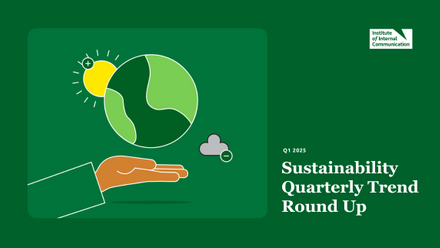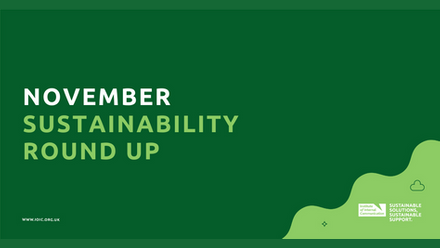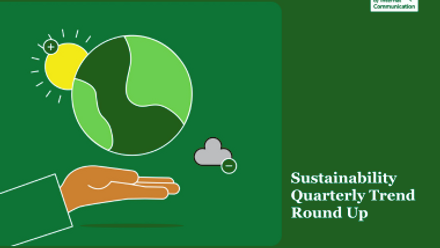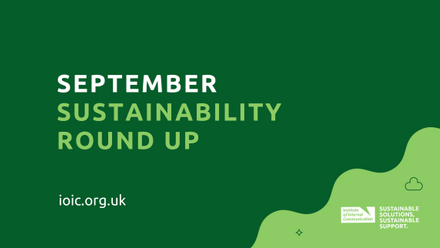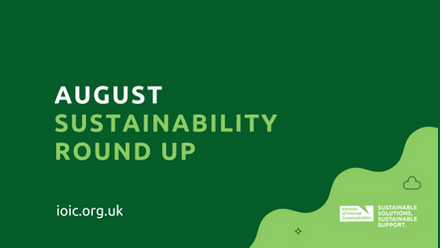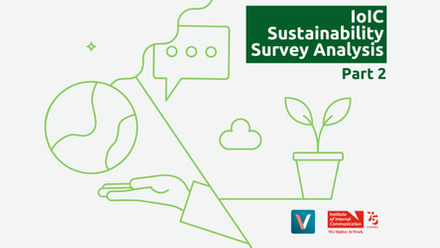Community sustainability
As the world continues to face intensifying environmental challenges, how does activity occurring at a more community level stack up nationally – and even internationally?
The Environmental Performance Index (EPI) is a collaboration between the Center for International Earth Science Information Network (CIESIN) and the Yale Center for Environmental Law and Policy.
It acts as an evidence-based sustainability scorecard that takes multiple factors into account. Essentially, it tallies national and global efforts toward achieving sustainability goals.
Its 2024 analysis has found that while greenhouse gas emissions are falling in a greater number of countries than ever before, only five of them had made sufficient reductions to reach net-zero by 2050, if they continued to cut emissions at their current rate. The UK ranks at number five, encouragingly.
For the first time, the 2024 EPI integrated new metrics to calculate how well individual countries protect essential habitats, as well as indicators to measure how effectively they regulate protected areas.
The index highlights the importance of working in collaboration with local communities to provide adequate funding of these areas and to develop well-regulated environmental protection standards.
The EPI's findings demonstrate the interconnectedness of grassroots efforts and national or international environmental performance, underscoring the value of local actions in addressing global challenges. The take-away for our organisations? The small changes we make can punch beyond their weight when it comes to building a more sustainable world.
Organisational sustainability
The current climate of heightened environmental awareness among consumers and employees presents an unprecedented opportunity for our organisations to enhance their sustainability credentials. With environmental concerns now front of mind for most stakeholders, companies face increasing pressure to adopt eco-friendly practices throughout their operations.
However, the challenge lies in balancing short-term business demands with long-term environmental goals. Many organisations struggle to find a sustainable path that satisfies both immediate financial needs and long-term ecological responsibilities.
To help address that challenge, this CEO Magazine article outlines four key recommendations for improving an organisation's net-positive environmental impact.
By implementing these strategies and fostering innovation, companies can simultaneously benefit the planet and their bottom line. This ‘do good by doing better’ approach allows businesses to nurture a more sustainable future while uncovering new avenues for growth and development.
Embracing these principles can help businesses to not only meet but exceed the growing expectations of eco-conscious consumers and environmentally aware employees – positioning them for success in an increasingly sustainability-focused landscape and safeguarding the planet for future generations.
Economic sustainability
Will we increasingly need to encourage our colleagues to align corporate strategies with the goals of supporting nature conservation and regeneration?
The World Economic Forum's New Nature Economy Report suggests that we would be wise to do so. It claims embracing nature-positive transitions in key socio-economic systems could unlock an eye-watering $10.1 trillion in global business opportunities by 2030.
While nature conservation is complex, frameworks exist to help companies assess their biodiversity impacts, manage risks and capitalise on opportunities.
Climate action strategies can provide valuable insights for nature-positive transitions. However, nature-related agendas still lag behind climate initiatives, particularly in terms of aligned frameworks and standards.
That said, business leaders are beginning to develop and pilot nature-positive actions. Some emphasise contributing to the global agenda through climate-neutral and nature-positive projects, while others advocate for a holistic approach to address climate change, biodiversity loss and pollution.
Practical examples include increasing urban greenery in real estate projects, which can cool surrounding temperatures, improve air quality and enhance living conditions.
The overall message for us as communicators is that key recommendations for improving an organisation's net-positive environmental impac – and that nature matters to our organisations in ways that we might not always think about currently.
Environmental sustainability
You’ll probably already be aware that temperatures have been 1.5C above the pre-industrial era average for 12 consecutive months, reflecting a significant and ongoing shift in the climate. To further underscore the gravity of that sobering fact, Sunday 21 July of this year was recorded as the hottest day globally in 20,000 years.
But did you know that climate change is actually making days longer – and could even soon surpass the moon’s influence on Earth?
The length of the Earth’s day has been steadily increasing over geological time due to the gravitational drag of the moon on the planet’s oceans and land. However, the melting of the Greenland and Antarctic ice sheets due to human-caused global heating has been redistributing water stored at high latitudes into the world’s oceans, leading to more water in the seas nearer the equator.
This is making the Earth ‘fatter’ – slowing the rotation of the planet and lengthening the day still further, albeit by milliseconds, according to Swiss researchers. It’s also caused the planet’s axis of rotation to shift slightly.
So, our behaviour as humans impacts the whole Earth system not just locally, like the rises in temperature we’re experiencing, but fundamentally at a planetary level, altering how it moves in space and rotates.
Perhaps there’s never been a more potent message to share with our colleagues to keep them all attuned to the ongoing need for making climate-positive changes – if their days sometimes seem to drag, at least they now have carbon emissions to blame for making them even longer...
Personal sustainability
The music industry is increasingly embracing sustainability, with artists leading efforts to promote environmental responsibility.
UN Climate Champions Massive Attack are pioneering low-carbon live music events, with their upcoming Bristol show promising to be the lowest-emission concert of its size to date. Recognising that 80% of the carbon impact of major shows emanates from audience transport, they've partnered with Train Hugger to incentivise rail travel. Fans using trains receive VIP perks and contribute to creating a climate-resilient woodland.
Coldplay implemented a plan to reduce the touring carbon footprint of their recent gigs, achieving a 59% reduction in CO2 emissions compared to their previous tour. They've employed innovative solutions like electricity-generating dancefloors and the band members reduced their reliance on air travel between tour dates. Additionally, they've planted seven million trees, one for each concert attendee.
Gen Z-er Billie Eilish has released her latest album on recycled eco-vinyl with sustainable packaging. She's also established a global conference called Overheated, focusing on climate emergency solutions and encouraging contributions from her young fanbase.
These initiatives demonstrate the music industry's growing commitment to addressing environmental concerns through innovative technologies, sustainable practices and fan engagement, fomenting an eco-friendlier approach to music production and live performances.
So, it looks like our personal sustainability choices might increasingly be linked to our personal music listening choices too moving forward.

